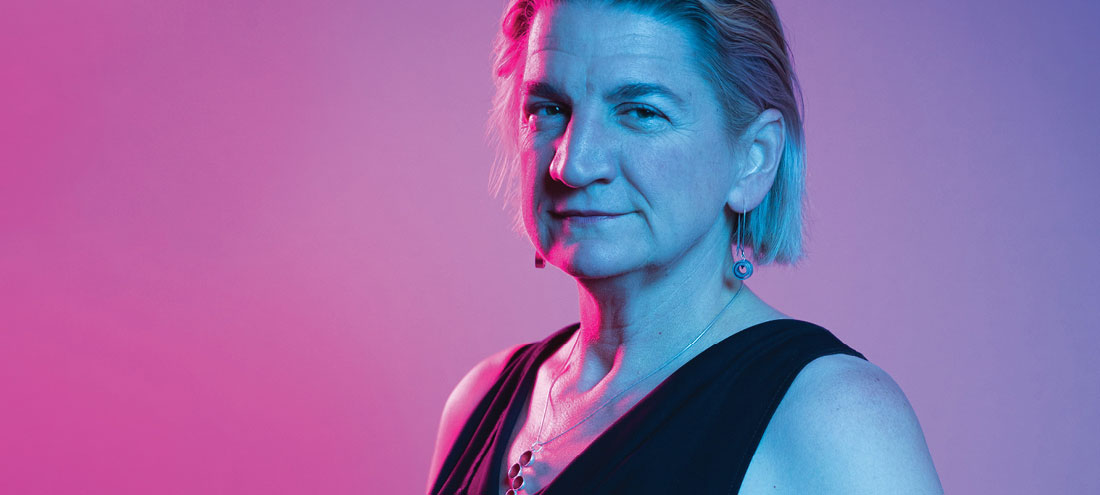Solving some of cancer’s most challenging riddles requires the ability to see the big picture. Luckily, this is something that Shannon McWeeney, PhD, is exceedingly good at.
As the head of bioinformatics and computational biology and associate director of computational biomedicine, McWeeney and her team helped to create a new data visualization platform called Vizome. The platform takes massive amounts of data and turns it into easily interpretable information to help facilitate new breakthroughs.
The need for such a platform became apparent during a study of acute myeloid leukemia. It was the largest study of its kind, generating so much data that it had potential to overwhelm scientists and clinicians. “Our goal was to develop a new approach to manage, integrate and visualize data in a way that would fuel exploration,” she said. “The last thing we wanted to do was isolate them from knowledge discovery.”
Many times after large datasets are created, they sit in limbo because there are barriers created by their size or complexity. “Vizome removes this research bottleneck so we can accelerate biomedical research more quickly,” she explained.
McWeeney didn’t always plan to go into cancer research. She was originally focused on modeling marine ecosystems. Then one summer, she attended a seminar about population genetics and disease applications. “That’s when I realized that my true north was no longer marine ecology,” she admitted.
Shifting gears, she went to University of California, Berkeley, and studied statistical genetics to focus on complex diseases. Then it was off to the University of Pennsylvania to study computational biology.
“When we’re assembling a team, our goal is to have it be as diverse as possible. When we get too narrow, we start to lose sight of the bigger picture.”
In the midst of all this, her mother was diagnosed with breast cancer.
“That was really a turning point. Suddenly, cancer became very personal,” she said. McWeeney accepted a position at the Knight Cancer Institute and began working on ways to combat drug resistance in cancer patients. She also studies cancer drugs that already have been approved and figures out ways to repurpose them for new treatments.
“It’s all about looking at what’s already in our arsenal and thinking about how they can work in other ways,” she said.
While McWeeney’s accomplishments have earned her an impressive list of awards, she is quick to point out that she doesn’t do it for the accolades. “All of this is for the patients,” she smiled. “None of it is for me.”

